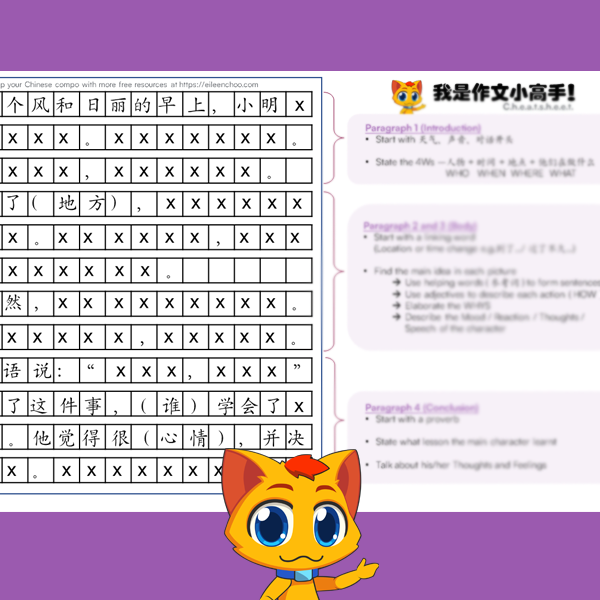
In this post, let’s look at 2 of the most common mis-spelled Chinese words that many primary school students make in their Chinese compositions – “在” (zai4) and “再” (zai4).
Although both words sound the same, they have very different meaning. Let’s learn more.
Mis-spelled Chinese word 在 (zai4) | What it means
The Chinese word 在 has 2 meanings. The first meaning is the same as the English word “at” and the second meaning is “-ing” where an action is ongoing.
For example, if I am in my room, I can say 我在房间. The place that I am at is in my room. However, if I want to use to describe myself doing something, I’ll say 我在看电视 (I am watching television).
This is not to be mis-spelled with the other Chinese word 再.
Mis-spelled Chinese word 再 (zai4) | What it means
Instead of being somewhere or doing something as expressed by 在, the word 再hints at repetition.
So whenever we mean “again”, we’re going to use this instead. For example, 再见 means “to see you again” and the sentence 我再也不会这样做 means “I’ll never do it again”.
In both scenario, an action is done and there is an element of it being or not being done again.
在 vs 再 – How to remember the difference
Now that we’ve learnt the meaning of these 2 common mis-spelled Chinese words, let’s learn how to remember them with this video I made.
Hopefully this helps you avoid making the mistake of getting these 2 words mixed up when you are writing your Chinese compo.
Besides these 2 Chinese words 在 and 再, are there any other Chinese words that get you confused? Let me know in the comments below and I’ll see how I can help make it easier for you.






